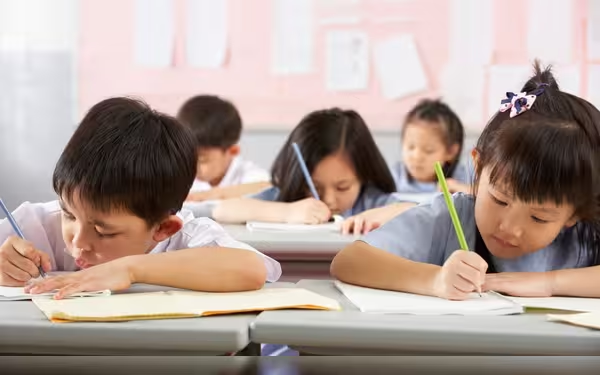Saturday, November 16, 2024 05:53 PM
Addressing Learning Difficulties in Pakistan's Education System
- Gifted students receive attention, but learning difficulties are overlooked.
- Intelligence does not guarantee ease in learning for all students.
- Inclusive education is essential for every child's success.
 Image Credits: channelnewsasia
Image Credits: channelnewsasiaThis article highlights the need for addressing learning difficulties in Pakistan's education system while supporting gifted students.
In recent years, the focus on gifted students has gained significant attention in educational discussions. While it is essential to nurture and support these high-achieving individuals, it is equally important to consider the needs of students who face learning difficulties. According to psychiatrist Lim Boon Leng, children with learning disorders often fall through the cracks of the education system, leading to a concerning oversight in how we approach education for all.
Many special needs students possess average to high intelligence, which can sometimes mask their underlying struggles. These students may meet basic academic standards, but that does not mean they do not require additional support. The reality is that learning difficulties can manifest in various ways, affecting a child's ability to process information, communicate effectively, or manage their emotions. As a result, these students may find themselves in a challenging position, where their needs are overlooked simply because they can perform at a certain level.
It is crucial for educators and policymakers to recognize that intelligence does not always equate to ease in learning. The education system must be equipped to identify and support students with learning difficulties, ensuring that they receive the necessary resources and interventions. This includes tailored teaching methods, access to specialized programs, and a supportive environment that fosters their growth.
Moreover, parents and guardians play a vital role in advocating for their children. By understanding the unique challenges that their children face, they can work collaboratively with teachers and schools to create a more inclusive educational experience. Open communication between parents and educators can lead to better strategies that cater to the diverse needs of all students.
While it is commendable to focus on gifted students, we must not forget those who struggle with learning difficulties. Every child deserves the opportunity to thrive in an educational setting that recognizes and addresses their individual needs. By fostering an inclusive environment, we can ensure that no child is left behind, paving the way for a brighter future for all.













